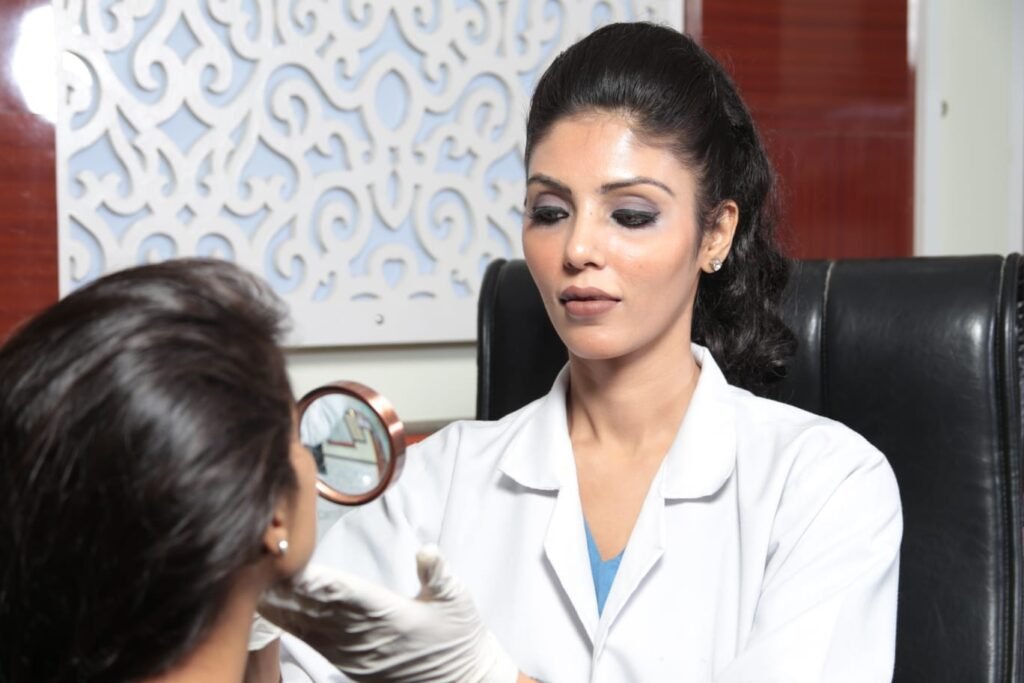
The Best Dermatologist for Itchy Skin Treatment Without Rashes
The most annoying feeling in your body is most likely itchy skin, if you ask someone who has experienced it. Contrary to common opinion, itchy skin is not necessarily accompanied by rashes, lumps, patches, or blisters. On the outside, your skin may appear completely normal, but underneath it will be unbearably itchy. What precisely is causing this, then? How can the itching be alleviated? Are there any complications related with it? In this post, we will address the various reasons for itchy skin without rashes, so feel free to ask any questions you may have.
Reasons for Skin Itching Without Rashes
The following are some typical and uncommon causes of skin irritation:
Dry Skin
Xerosis is the medical term for dry skin. The great majority of people are impacted by this widespread problem. In this case, as the skin becomes dehydrated, it begins to itch. Examining the skin for flakiness or scaliness is the simplest method to identify dry skin. It is more prevalent in elderly persons, particularly in the winter months when humidity is quite low.
Here are some helpful hints to help you avoid dry skin:
Bites of Bugs
You are all familiar with the sensation of being bitten by a bug, which is inevitable. The area surrounding the bite will be extremely itchy, and there will be a raised bump. Ants and mosquitoes are the insects that trigger this kind of reaction. Some bigs, on the other hand, just leave behind a little hole or pinprick-like area after they bite. Most people will experience itching, but it will be so tiny that they won’t even notice they were bitten. Additionally, there are insects that dwell on your skin or feed on you every night, such as bedbugs, lice, and mites. You won’t ever know what started the itching, but it will be persistent and uncontrollable.
In addition to getting rid of the pests in your house, you can attempt the following two methods:
Do not scrape the area.
The affected area should be covered with a cold compress.
See a dermatologist if the itching doesn’t go away, and they may recommend one of the following:
A remedy for dental pain
Cream for steroids
An antihistamine
Every one of them will ease the pain.
Adverse Drug Reactions
Certain drugs can occasionally make you itchy without giving you a rash. They are the unintended consequences. For example, niacin and other cholesterol-lowering medications, as well as statins, can cause itching all over. This is a common reaction or a result of liver stress. Taking aspirin can sometimes help ease it.
Amlodipine and other blood pressure drugs might potentially cause itching due to allergic reactions or liver problems. Once the drug is stopped, they usually go away. Similar to this, itching is a typical side effect of opioids that can be controlled with certain drugs like nalbuphine or nalfurafine hydrochloride.
Lastly, because of organ damage or misuse, medications such as blood thinners, antimalarials, diabetic treatments, and antibiotics can cause itching.
To get rid of itching, always get advice from your doctor on whether you can stop taking the medication or switch to another one.
An underlying illness
Numerous illnesses can cause itching without a rash, including:
Nerve disorders: When nerve signaling is disrupted by illnesses such as stroke, diabetes, or postherpetic neuralgia, or when nerve damage occurs, neuropathic itching happens.
Kidney disease: Dialysis or medicine may be necessary for itchiness caused by multiple variables, particularly in advanced stages of the disease.
Hepatitis and cirrhosis are two liver illnesses that can cause itching, which is frequently made worse by heat or at night and may be related to bile accumulation.
Itching may be an early sign of new or developing lesions in skin cancer.
Hodgkin lymphoma: This disease can cause itching in addition to symptoms like weight loss, night sweats, and enlarged lymph nodes.
After the underlying disease is treated, your itching will stop.
How Soon Should I See a Dermatologist?
It could be time to see a dermatologist if your daily activities are being affected by severe or ongoing itching that is not accompanied by a visible rash. When the itching is accompanied by additional symptoms like fever, exhaustion, unexplained weight loss, or changes in the texture of the skin, it becomes even more crucial to see a doctor.
As we’ve already mentioned, persistent itching may indicate a more serious underlying issue that could be more harmful. Through a thorough assessment, a dermatologist can assist in determining the cause and might suggest additional testing or therapies to successfully address the itching and its underlying cause.